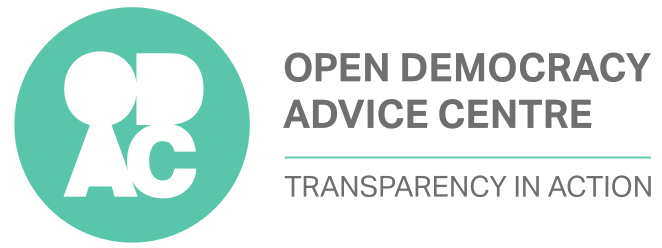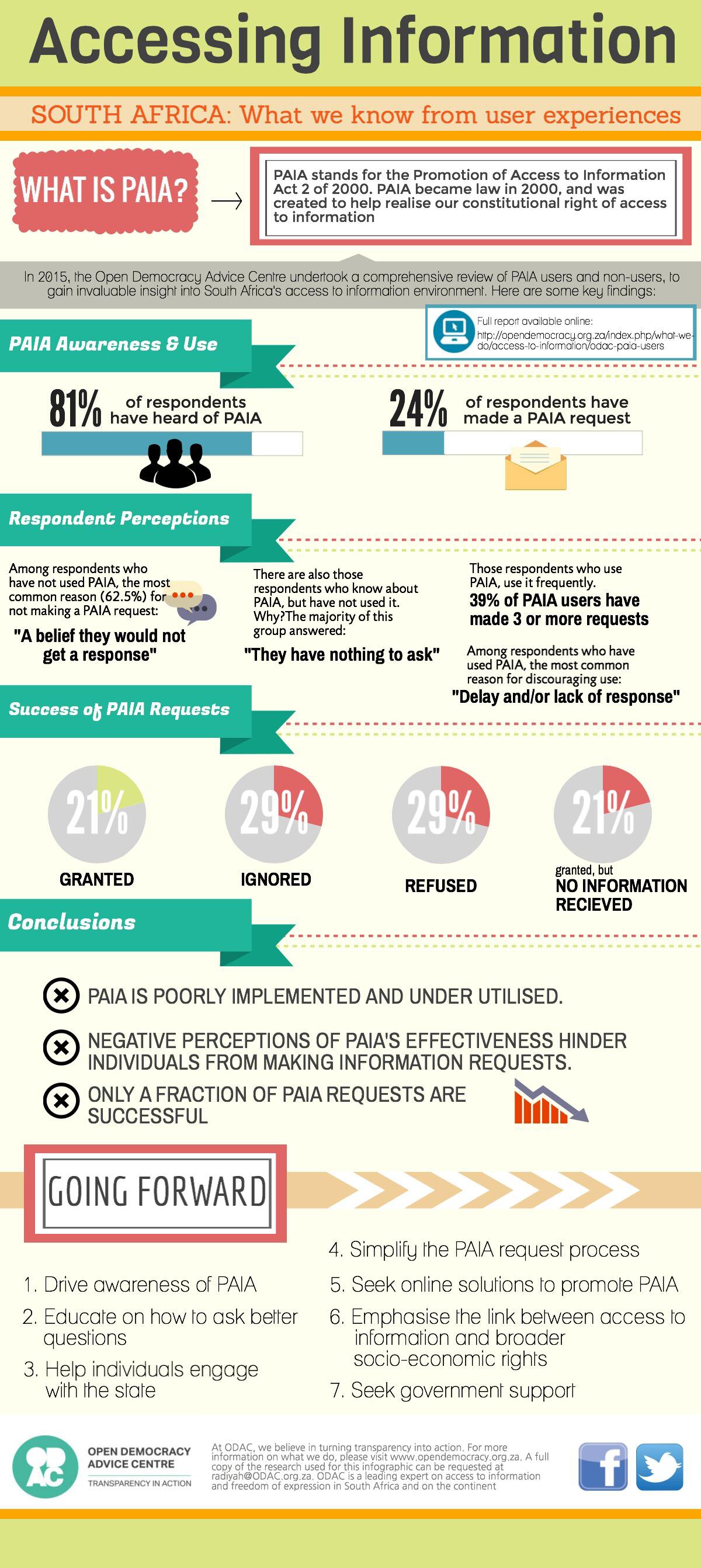| |
OGP
|
APRM
|
UPR
|
OECDA
|
|
Year Established
|
2011
|
2003
|
2007 (first cycle 2008)
|
1997
|
|
Reporting Cycle
|
Two and a half years between action plans (anticipated).
|
Five years between reviews (anticipated).
|
Every 4 and a half years (anticipated).
|
Ongoing. Phase 3 reports occur four times a year.
|
|
Institutional Home/Leadership
|
International Multi (sectoral / stakeholder) Steering Committee.
|
New Partnership for Africa's Development.
|
United Nations Human Rights Council.
|
OECD Working Group on Bribery in International Business Transactions.
|
|
Organisational Structure
|
The OGP is led by the Steering Committee made up of up to 20 government and non-government members. Administrative and technical support is provided by the OGP Support Unit.
|
The APR Forum for Participating Heads of State and Government; the APR Panel of Eminent Persons; The APRM Secretariat and the Committee of Focal Points.
|
The UPR Working Group, made up of 47 representatives of UN member states, with support of the Office of the High Commissioner of Human Rights.
|
OECD Working Group, with the support of the OECD Secretariat.
|
|
National Lead Agency
|
OGP Representative and National Multi-Stakeholder Forum.
|
National APRM Focal Point (usually a Minister); National Governing Council (or National Commission); National APRM Secretariat (operational support) and Technical Research Institutes (TRIs).
|
UPR Representative as a Senior Government Official.
|
OECDA Representative as Senior Government Official.
|
|
Source Principles
|
Open Government Declaration: Open government and transparency.
|
NEPAD Document: Development and governance.
|
The Universal Declaration on Human Rights: The universality, interdependence, indivisibility and interrelatedness of all human rights.
|
OECD Convention Article on Combating Bribery of Foreign Public Officials in International Business Transactions: Fostering growth, economic stability and societal well-being.
|
|
Qualifying Criteria
|
Voluntary, with qualifying criteria (minimum eligibility) and Signatory.
|
Voluntary, and Signatory.
|
Automatic for all Member States.
|
Invitation, and Signatory to OECD Convention.
|
|
Countries Currently Covered/Participating
|
65 countries participating. As of November 2014, 93 countries are eligible to join OGP.
|
By March 2015, 35 of African Union's 54 member states had acceded to the APRM.
|
All 193 UN Member States.
|
34 EU Member and 7 Non-member States (including South Africa).
|
|
Scope of Review/Thematic Areas
|
"Open Government" with a focus on Transparency; Accountability; Participation; Technology & Innovation.
|
"Social Development" measured across four main thematic areas: Democracy and Political Governance, Economic Governance and Management, Corporate Governance, Socio-Economic. Both government and other stakeholders are reviewed.
|
"Universal Human Rights" records of member states, including consideration of inter alia freedom of the press; freedom of religion and belief; freedom of expression; freedom of movement; freedom of association and peaceful assembly; extra-judicial executions; environment; enforced disappearances; elections; general economic, social and cultural rights; disabilities; development; detention; death penalty; counter-terrorism; corruption, civil society; general civil and political rights; and asylum seekers and refugees.
|
"Foreign Bribery".
|
|
Development of Indicators/Data Sources
|
Self-determined in collaboration with civil society.
|
Quantitative and qualitative indicators; very broad but pre-determined.
|
Based on dialogue between Member States, then assessing implementation of 'Recommendations'.
|
Initially established by the Working Group, then based on the 'Recommendations' resulting from the review in early phases.
|
|
Review Mechanism (main structure)
|
Self and Independent Review Mechanism.
|
Self, Independent (Country Review Mission) and Peer (APR Forum).
|
Self and Peer Review (Troika).
|
Self and Peer (Pair; can be expert consultants).
|
|
Process Outline
|
Five Stages. Stage 1: Eligibility met and Letter of Intent accepted; Stage 2: State and civil society develop National Action Plan; Stage 3: A full year of implementation follows; Stage 4: Independent and self review assessments completed; Stage 5: New Action Plan developed. Next Review Begins.
|
Five Stages. Stage 1: Accession to MoU and establishment of structures; Stage 2: Country Review Mission and Draft Report; Stage 3 Country Reviews and Comments; Stage 4: Final Report discussed in APR Forum; Stage 5: Report and National Programme of Action tabled. Next Review Begins.
|
Three Stages. Stage 1: The Preparatory Phase: Current situation assessed and Recommendations noted; Stage 2: Troika conducts Review and Review adopted; Stage 3: Recommendations implemented. Next Review Begins (with acknowledgement of first review's implementation).
|
Three Phases Phase 1: Evaluate legal instruments against Convention; Phase 2 Review of enforcement and implementation, Phase 3: Follow up on recommendations and adjustments made under Phase 2.
|
|
Reporting Details
|
OGP Steering Committee adopts both country-prepared self assessment, as well as independently prepared IRM report.
|
African Peer Review Forum adopts final Country Review Report. This is adopted alongside minutes of debate, as well as the state-created National Programme of Action.
|
State prepares National Report. All outcome reports adopted by Working Group.
|
Working Groups adopts Phase 1, 2 and 3 reports. State assessments incorporated into those reports.
|
|
Sanction
|
Soft sanction and Eligibility Complaints Process.
|
Soft sanction: Recommendations and dialogue.
|
Soft sanction; but "consistent non-cooperation" can be addressed by the Human Rights Council.
|
Soft sanction: Dialogue and delegations.
|
|
Citizen Participation
|
Significant: Civil Society forms part of the formal structures of the OGP, and is consulted during every phase of the review.
|
Limited: The National Governing Council is multi-stakeholder and thus civil society is engaged in the development of the National Programme of Action, but there is little guidance.
|
Limited: Civil society may make contributions to the National Report and might be consulted during review. They are permitted to witness the Working Group session on the outcomes report.
|
Severely limited: Consultation with civil society as stakeholders possible during Phase 2 and 3.
|
 Busy day? You can always read our infographic (which will be distributed alongside the research) here.
Busy day? You can always read our infographic (which will be distributed alongside the research) here.
